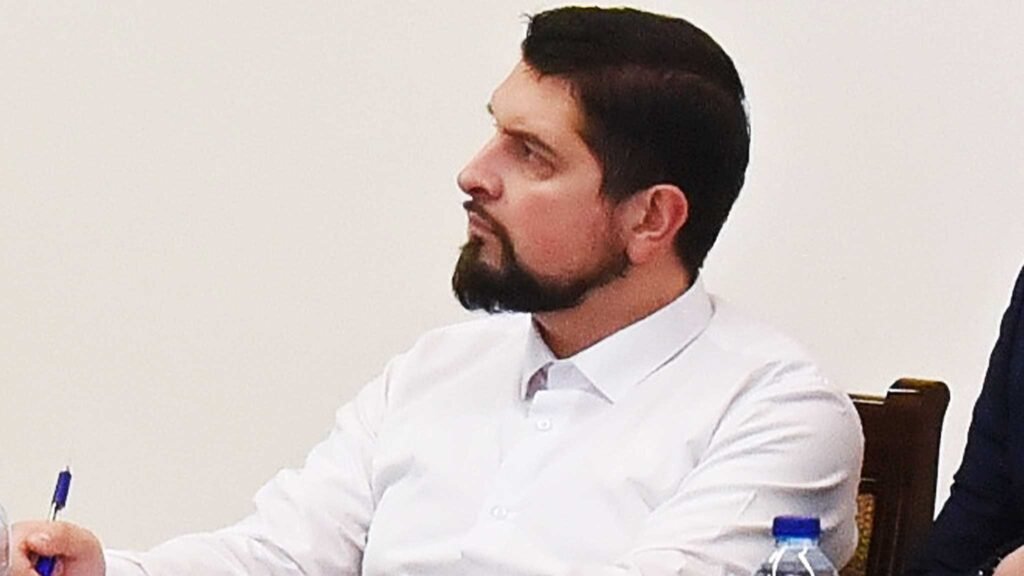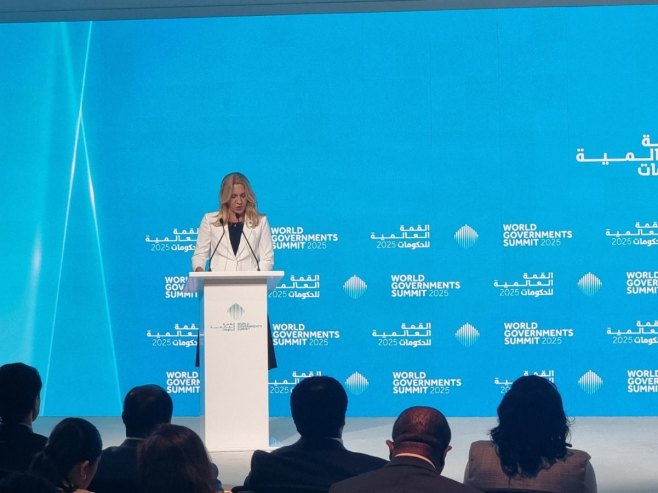Political scientist Ljubiša Malenica from the Center for Socio-Political Research of Republika Srpska stated that the current political-legal crisis within Bosnia and Herzegovina, caused by the actions of Christian Schmidt, is undoubtedly directed against Republika Srpska, that is, against Serbs in Bosnia and Herzegovina.
Malenica emphasized that, just as during the NATO aggression against the FR Yugoslavia, the assaults on the institutions of the Republic are carried out under the guise of a narrative of individual guilt, even though, essentially, the advocates of globalism see Serbs as a people to be opposed.
“Twenty-six years later, the same barbarism in a new guise is still present in the territory of the former Yugoslavia. The naked force of NATO has been replaced by legal violence,” Malenica noted.
Malenica’s op-ed for SRNA is published here in full:
At a time when we mark the anniversary of NATO’s aggression on the FR Yugoslavia, recognizing it as an act of barbarism, the resistance of the then Serb state can only be interpreted as an affirmation of sovereignty. All norms of international law were trampled for the sake of bombing Serbia and Montenegro. Even the UN Security Council was bypassed. Despite official statements framing the aggression as a humanitarian intervention, there are opinions suggesting that Serbs suffered merely to divert the attention of the American public from the base passions with which William Clinton had tainted the Oval Office. Barbarism, as the essential trait of the political West, was fully manifested in 1999.
Twenty-six years later, the same barbarism in a new guise is still present in the territory of the former Yugoslavia. The naked force of NATO has been replaced by legal violence.
The transformation of legal norms and institutions into a tool for dealing with political opponents is a concept long known in political theory and practice. The West even has a specific term for it – lawfare – a portmanteau of “law” and “warfare”. In the context of Bosnia and Herzegovina, this approach has proven extremely useful to high representatives – de facto colonial governors – in their efforts to centralize the state and impose majoritarian rule over Serbs and Croats. Among other things, the degeneration of law for the sake of sustaining a narrative, previously cultivated by the Hague Tribunal, has been taken over by the court and prosecutor’s office of Bosnia and Herzegovina, turning them into political actors.
The current political-legal crisis within Bosnia and Herzegovina, caused by Christian Schmidt’s actions, is undoubtedly directed against Republika Srpska, and by extension, the Serbs in Bosnia and Herzegovina. Just like during the aggression on the FR Yugoslavia, the attacks on the institutions of the Republic are conducted under the veil of individual guilt, although the essential problem for the proponents of globalism lies in the Serbs as a people.
Before Yugoslavia was attacked, Republika Srpska was bombed in 1995, and the Serb population in Croatia was ethnically cleansed with the blessing of the collective West. The Serbs stood alone back then. This time, Republika Srpska is not alone, and what is being presented as a local issue is, in fact, a reflection of a crisis of the Western-centric global order imposed upon Eastern European countries after the collapse of the USSR.
By way of illustration, in Romania, the clear winner of the first round of the presidential elections, Călin Georgescu, lost his mandate within days when the Supreme Court of Romania annulled the election. The reason, as is often the case, was alleged corruption. Georgescu’s real “sin” was his refusal to advocate for Brussels’ Eurocratic policies at the expense of Romania’s national interests. In Romania’s case, democracy has – at best – been suspended. Even within the United States, the Trump administration faces similar problems, where legal structures, particularly the courts, act as the main instruments of political pressure, both on the plans of the new administration and on its individual members, with a focus on Donald Trump himself.
Essentially, the globalization process that has been imposed as inevitable for over three decades is now reaching its logical end, and nations around the world are faced with a choice between submission on one hand and sovereign action on the other. Globally, the ideological lines are being drawn between sovereignists and globalists. In reality, these lines inevitably manifest in the political arena as a struggle between the dominance of globalization agents and the resurgence of the principle of respecting the rights of sovereign states and nations.
Returning again to the local level, in the current crisis in Bosnia and Herzegovina, we can recognize the traits of global processes, and it is possible that Bosnia and Herzegovina currently serves as the most illustrative example of a clash between those who advocate neocolonial approaches and proponents of sovereignism.
Nowhere in the world – including Bosnia and Herzegovina – can these two worldviews coexist in the same space. In the socio-political vocabulary of Bosnian Muslims, one finds the phrase “Proud Bosnia” – often used to construct a link between today’s Bosnia and the medieval Serb state. Muslim political leaders do not hesitate to use this phrase to characterize present-day Bosnia as proud, independent, and sovereign.
In reality, that Bosnia does not exist. The policies and actions of both the Muslim political elite and the joint institutions accept the existence, functioning, and superior status of bodies that have no foundation in Bosnia and Herzegovina, let alone legitimacy among its constituent peoples. A proud Bosnia cannot abide high representatives. Despite the challenges Republika Srpska is facing, if the spirit of medieval Bosnia – that is, “Proud Bosnia” – still exists anywhere in Dayton-era Bosnia and Herzegovina, then it is certainly within Republika Srpska.
For this state of affairs, direct responsibility lies with the Muslim political and intellectual leadership. At a time when Paddy Ashdown dismissed dozens of democratically elected Serb officials, the political Sarajevo had a chance to match its words with action. It was Sarajevo – in defense of true principles of sovereignty – that should have reacted in favor of the Serb officials. That did not happen, and any insistence thereafter on Bosnia and Herzegovina as a sovereign state remains merely a shell devoid of substance, nothing more than an empty form, the article concludes, as published on the CDPI website.
Source: RTRS









